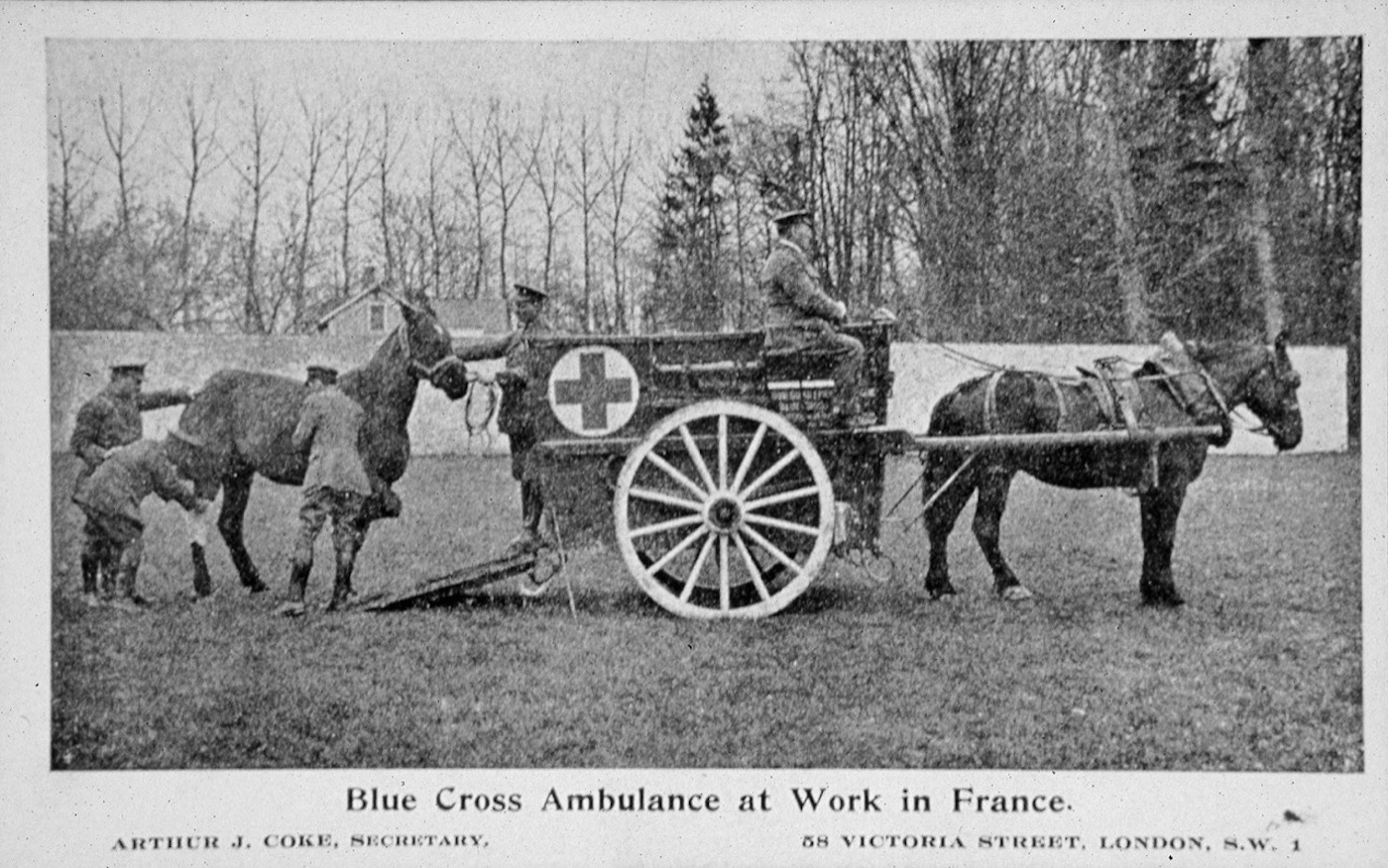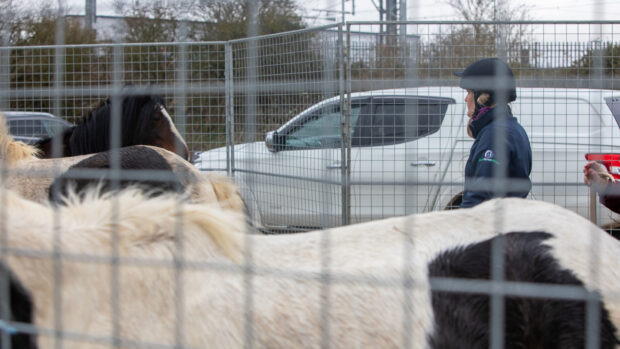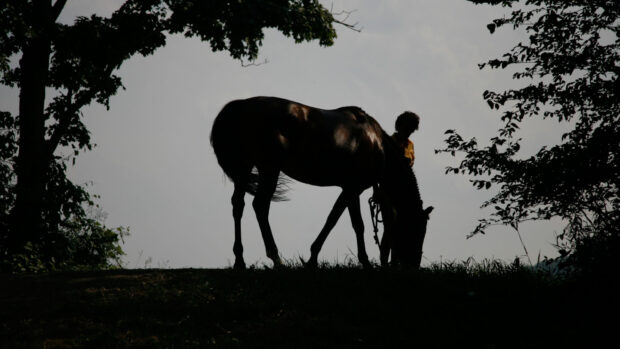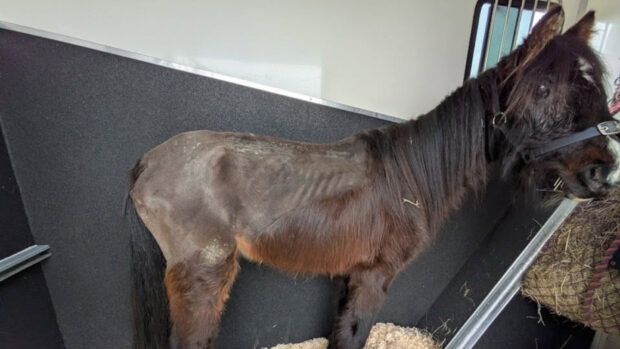Charities are among those remembering the soldiers and animals killed in conflict, on Armistice Day, today (11 November).
More than eight million equids died between 1914 and 1918, as well as camels, bullocks, dogs, carrier pigeons and other animals.
A spokesman for the RSPCA said many of its inspectors had been soldiers prior to joining the charity, and when the war was declared they were called to their old regiments, like many other reservists in Britain.
“At the height of the war 1,000 horses a week were being sent to fight,” said the spokesman.
“Within weeks of the war starting we set up the RSPCA Fund for Sick and Wounded Horses. It raised more than £250,000 (the equivalent of over £12m today) between 1914 and 1918. Even King George V made a donation.”
The spokesman said the fund paid for four fully equipped field hospitals with state-of-the-art operating theatres that could each hold up to 2,000 horses. It also bought 28 motorised and 180 horse-drawn ambulances to carry injured horses back from the fighting to the vet hospitals.
“The hospitals treated two and a half million animals during World War One and 80% of them were taken back to the front lines again,” said the spokesman.
“More than eight million horses died in the First World War, many on the front lines, and 18 RSPCA inspectors were killed during the conflict. During the war, the RSPCA worked tirelessly to help sick and wounded horses on the frontline and protect and support all those animals under fire.”
Dermot Murphy, head of the RSPCA rescue teams, said: “It is so important to commemorate the bravery and sacrifice of our staff and remember all the animals who lost their lives through conflict.
“Animals have given so much to us, not just in the theatre of war, and we owe it to them to continue our work to improve their lives now and into the future.”
The spokesman added that the RSPCA bought thousands of sheepskins, cloths, bandages, medicines, brushes, hoof picks, books and tonnes of horse feed for the animals in the field hospital, and the charity trained men entering the Army Veterinary Corps in looking after horses.
“As horses were being subjected to new types of warfare, including gas attacks, the fund began paying for specialist veterinary laboratory equipment and isolation units, which were vital in treating animals suffering the effects of gas attacks and burns,” he said.
“We didn’t confine our support to British forces. The fund provided 11 motorised ambulances to the American army, as well as provided assistance to the Canadian army. By the end of the war the fund had become truly international, supporting activities in France, Italy, Mesopotamia, Salonika and Egypt.”
The Blue Cross started helping animals during the Balkan War, in 1912-13 then during the First World War set up animal hospitals on the front line, providing essential veterinary kits to soldiers for their horses.
“Originally named ‘Our Dumb Friends League’, the charity formed in 1897 and has been crucial to the lives of millions of animals since its early work helping the working horses of London. Special fundraising efforts provided water troughs placed all over the capital and ‘trace’ horses to assist weaker horses carrying a heavy load up steep hills,” said a Blue Cross spokesman.

“The Blue Cross Fund, led by Arthur Coke, worked tirelessly to raise cash towards helping animals at home and overseas in wartime. In the First World War, animal hospitals were set up across France and Italy, and animal ambulances, marked with a blue cross to distinguish them from the ambulances for injured soldiers, were funded to collect animals on front lines needing urgent treatment. Eventually, the charity changed its name to Blue Cross in the 1950s.”
The spokesman added that by the end of the First World War, more than 50,000 animals had been treated in Blue Cross hospitals in France alone, and veterinary supplies were received by more than 3,500 units of the British Army.

Lest we forget: photographer pays homage to war heroes in stunning photoshoot
‘Remembrance Sunday is so meaningful and I feel very proud of our country when I think of the people who

Remembrance Day: how were horses transported during World War One?

Subscribe to Horse & Hound magazine today – and enjoy unlimited website access all year round
Brooke has launched an ‘Every Horse Remembered’ pin badge costing £3, available until the end of November on the charity’s website.
“We ask that people wear them alongside their poppy to help remember the brave animals who sacrificed their lives during the two world wars,” said a Brooke spokesman.
Horse & Hound magazine, out every Thursday, is packed with all the latest news and reports, as well as interviews, specials, nostalgia, vet and training advice. Find how you can enjoy the magazine delivered to your door every week, plus options to upgrade to access our H&H Plus online service which brings you breaking news as it happens as well as other benefits.




